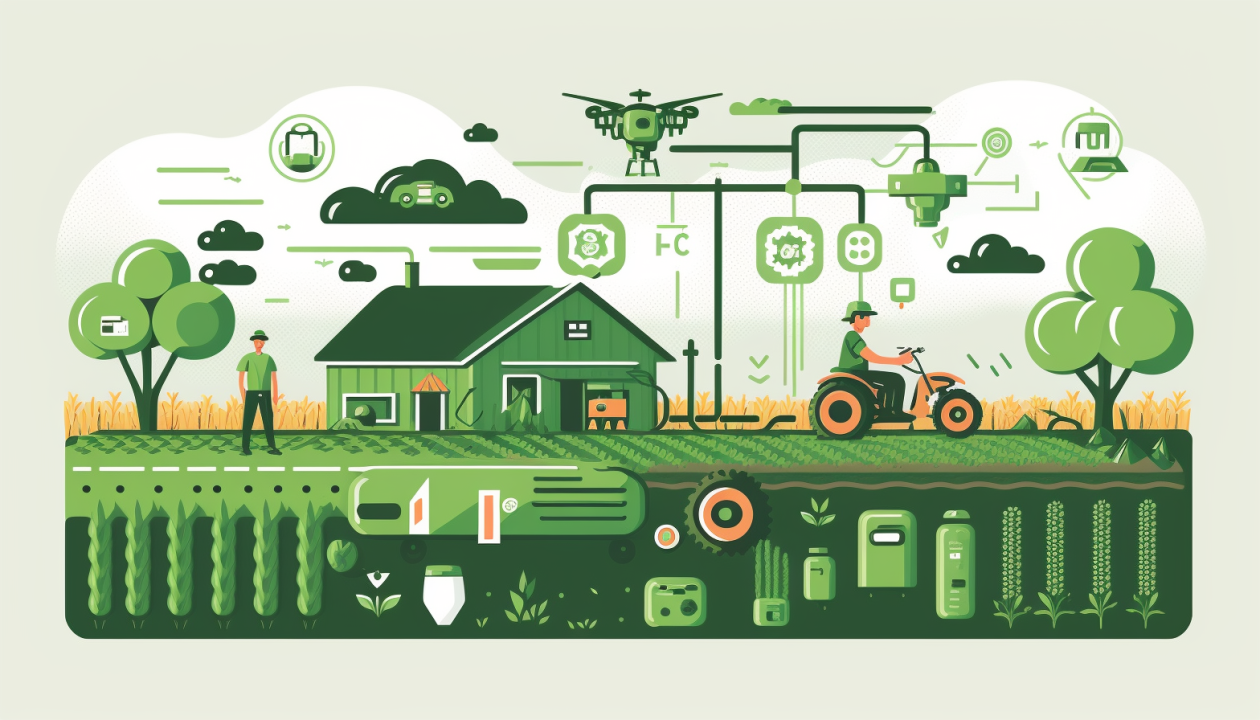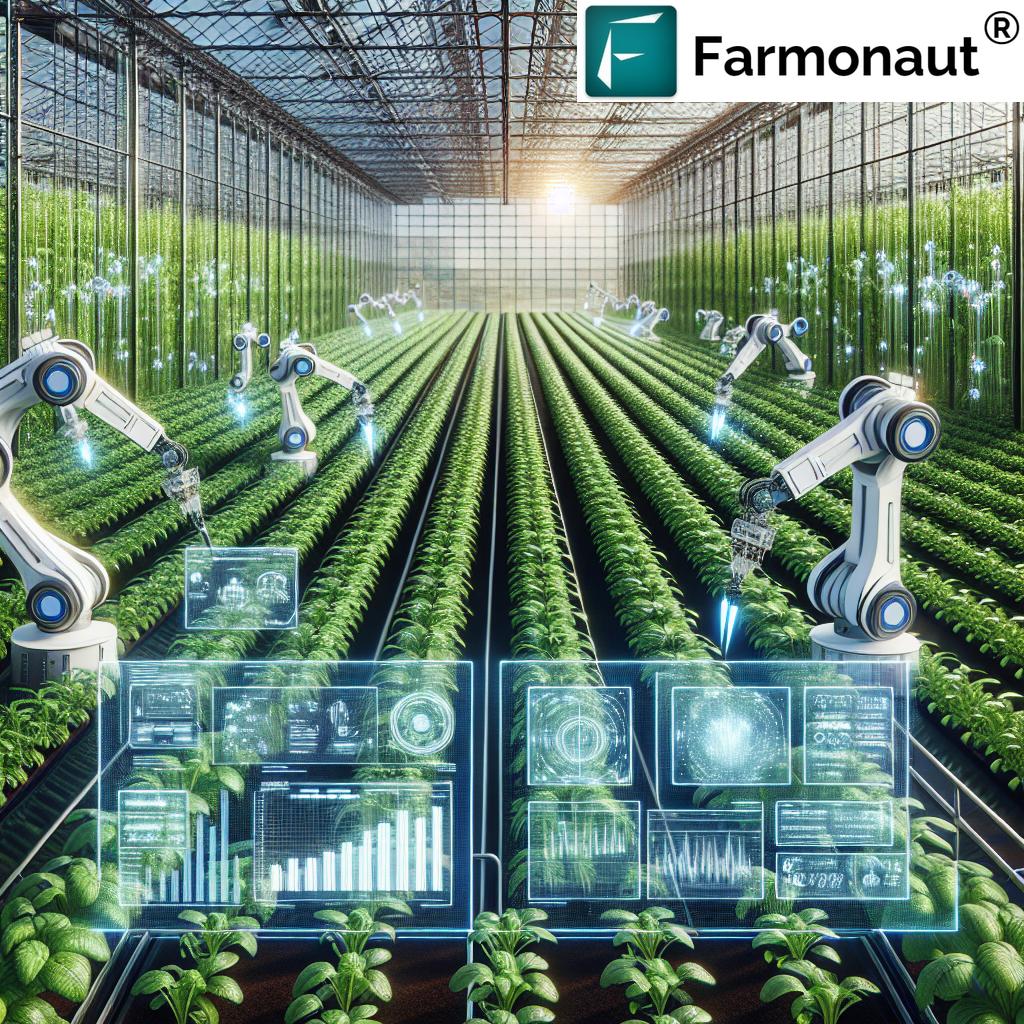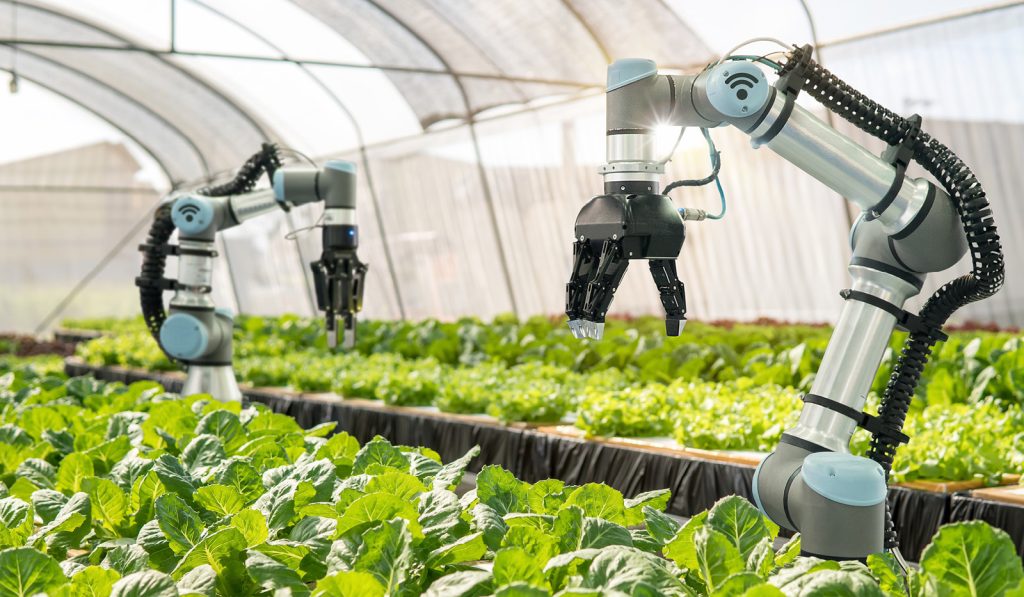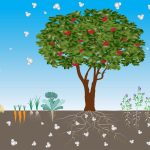Are you ready to discover how AI is transforming agriculture and shaping the future of farming? Imagine a world where farming is smarter, more efficient, and sustainable.
With AI, this vision is quickly becoming a reality. As a farmer or someone interested in the future of food production, understanding AI’s role in agriculture is crucial. It’s not just about technology; it’s about revolutionizing how we grow and manage crops, ensuring food security for generations to come.
Dive into this article to uncover how AI is setting the stage for the future of smart farming, and why it matters to you and your community. Get ready to be amazed by the innovations that could redefine how we think about agriculture.

Precision Farming Technologies
Precision farming technologies are reshaping agriculture. They help farmers make smarter decisions. This approach uses data to improve crop yields and reduce waste. With advanced tools, farmers can track soil health, monitor weather, and manage resources efficiently. Precision farming is about using technology to boost productivity while saving costs.
Soil Sensors And Monitoring
Soil sensors give real-time data on soil conditions. Farmers use this data to know moisture levels and nutrient needs. This helps them apply the right amount of water and fertilizers. It ensures crops get what they need without wasting resources.
Gps And Drones In Agriculture
GPS and drones offer farmers a bird’s-eye view of their fields. GPS helps in mapping and planning precise field operations. Drones capture aerial images and detect crop health issues early. They help farmers act fast and prevent larger problems.
Ai-powered Crop Management
AI-powered systems analyze data to predict crop diseases. They can suggest the best planting and harvesting times. This technology helps farmers optimize their operations. It leads to healthier crops and better yields.
Automated Machinery And Robotics
Automated machinery reduces labor costs and increases efficiency. Robots can plant, water, and harvest crops with precision. They work tirelessly, ensuring tasks are completed on time. Automation brings consistency and reliability to farming activities.
Smart Irrigation Systems
Smart irrigation systems save water by using sensors and data analytics. They adjust water delivery based on plant needs and weather conditions. This approach conserves water and ensures crops receive adequate hydration. It supports sustainable farming practices.
Crop Monitoring And Management
Imagine walking through a lush field of crops, knowing that every plant is being monitored and managed with precision and care. That’s the future smart farming promises with AI in agriculture. Crop monitoring and management are crucial parts of this revolution, offering farmers unprecedented insights and control over their fields. This technology can optimize yields, reduce waste, and ensure sustainable practices. But how exactly does AI enhance crop monitoring and management, and what can you do to harness its full potential?
Real-time Monitoring With Drones
Picture drones flying over your fields, capturing real-time data about crop health and soil conditions. They provide aerial views that can spot issues invisible from the ground. This means you can address problems before they escalate. You save time and resources, focusing on areas needing the most attention.
Predictive Analytics For Better Decision Making
AI uses predictive analytics to forecast weather patterns and potential pest infestations. By analyzing historical data, it helps you make informed decisions about planting and harvesting. You can plan ahead, minimizing risks and maximizing outputs. Wouldn’t it be great to know exactly when to plant for optimal growth?
Soil Health Monitoring
AI sensors can monitor soil moisture, nutrient levels, and pH balance. This information is vital for maintaining soil health and ensuring crops get what they need. Healthy soil leads to healthy crops, translating into better yields. Imagine the peace of mind knowing your soil is in perfect condition.
Automated Irrigation Systems
Gone are the days of manual irrigation guesswork. AI-controlled systems automate water distribution based on real-time data. This ensures efficient water use, preventing over-irrigation or drought stress. You can relax knowing your plants are receiving optimal hydration.
Early Pest And Disease Detection
AI systems can detect pests and diseases early, reducing the chance of outbreaks. By identifying threats quickly, you can take action before they cause significant damage. Protecting your crops becomes easier, saving both time and money. What if you could stop a pest invasion in its tracks?
AI in agriculture is transforming how you approach crop monitoring and management. These technologies offer practical solutions to improve efficiency and sustainability. Have you considered how AI could optimize your farming practices? Embrace the future of smart farming and watch your fields flourish.
Predictive Analytics For Yield Improvement
Predictive analytics boosts yield in agriculture by analyzing data to make informed decisions. AI-driven tools in smart farming optimize resource use, improving productivity and sustainability. Farmers gain insights into crop health and weather patterns, enhancing efficiency and reducing waste.
Predictive analytics in agriculture is transforming how farmers approach crop yield. By using data, farmers can better predict future crop performance. This leads to more efficient farming practices. Predictive analytics combines historical data, weather patterns, and soil conditions. This combination gives farmers insights to improve yields.How Predictive Analytics Works
Predictive analytics uses data algorithms to forecast crop yields. It analyzes past data to find patterns. These patterns help predict future agricultural outcomes. Farmers can use this to plan planting and harvesting times. This data-driven approach minimizes risks and maximizes profits.Benefits For Farmers
Predictive analytics helps farmers make informed decisions. It reduces the guesswork in farming. With accurate predictions, farmers can allocate resources better. This leads to cost savings. It also improves the quality of crops. Farmers can focus on high-yielding areas, optimizing their efforts.Tools And Technologies Used
Various tools assist in predictive analytics for agriculture. Drones, sensors, and satellite imagery collect data. Software analyzes this data to provide insights. Machine learning models refine these predictions over time. These technologies work together to offer precise forecasts.Challenges And Considerations
While predictive analytics offers many benefits, challenges exist. Data accuracy is vital for reliable predictions. Farmers need access to the right technology. Training is also important to use these tools effectively. Overcoming these challenges ensures successful implementation.
Challenges And Opportunities
Smart farming with AI presents both challenges and opportunities. Issues like data privacy and infrastructure limit adoption. Yet, AI offers precision and efficiency, enhancing crop yields and sustainability.
The future of agriculture is being shaped by artificial intelligence, offering both exciting opportunities and significant challenges. As AI technology becomes more integrated into farming practices, it promises to enhance productivity and sustainability. However, it also presents hurdles that need careful consideration and innovative solutions.Challenges In Implementing Ai In Agriculture
Farmers often face high costs when adopting new AI technologies. The initial investment for AI tools and systems can be prohibitive, especially for small-scale farmers. There is also a steep learning curve associated with using AI. Understanding and effectively utilizing AI tools require training and technical knowledge, which not all farmers possess. Data privacy and security present additional challenges. Farmers must trust that their data is protected and not misused, which can be a significant concern.Opportunities For Ai In Agriculture
AI can significantly increase crop yields. By analyzing data from various sources, AI helps farmers make informed decisions about planting, watering, and harvesting. Precision farming is an opportunity that AI brings to the table. It allows farmers to use resources like water and fertilizers more efficiently, reducing waste and costs. AI technologies can also help in pest and disease detection. Early detection means farmers can take action before problems escalate, saving crops and increasing productivity.Balancing Challenges And Opportunities
How can farmers balance these challenges and opportunities? One approach is to start small, using AI in one area and gradually expanding as they become more comfortable. Collaboration is key. Partnering with tech companies and agricultural experts can provide the support needed to successfully implement AI. Consider what specific goals you have for AI in your farming practice. Are you looking to increase yield, improve sustainability, or enhance efficiency? Clear goals can guide your AI adoption journey.Engaging With Ai: Are You Ready?
Are you ready to embrace AI in your farming operations? Think about the potential benefits and weigh them against the challenges. Consider the long-term impact AI could have on your farm’s productivity and sustainability. Will AI help you achieve your vision for the future of your farm? You have the opportunity to lead the way in smart farming. What steps will you take today to prepare for the agricultural future?
Conclusion
AI in agriculture is shaping a smarter future. Farmers now have better tools. Data-driven decisions improve crop yields. Efficiency increases, waste decreases. Technology aids in sustainable practices. It helps conserve resources like water and energy. AI-driven machines simplify tasks for farmers.
They work longer and more precisely. These advancements support global food demands. As technology progresses, farming becomes more efficient. Farmers can focus on growing quality produce. AI in agriculture offers promising opportunities. It bridges the gap between tradition and innovation.
The future of farming is indeed bright with AI.



